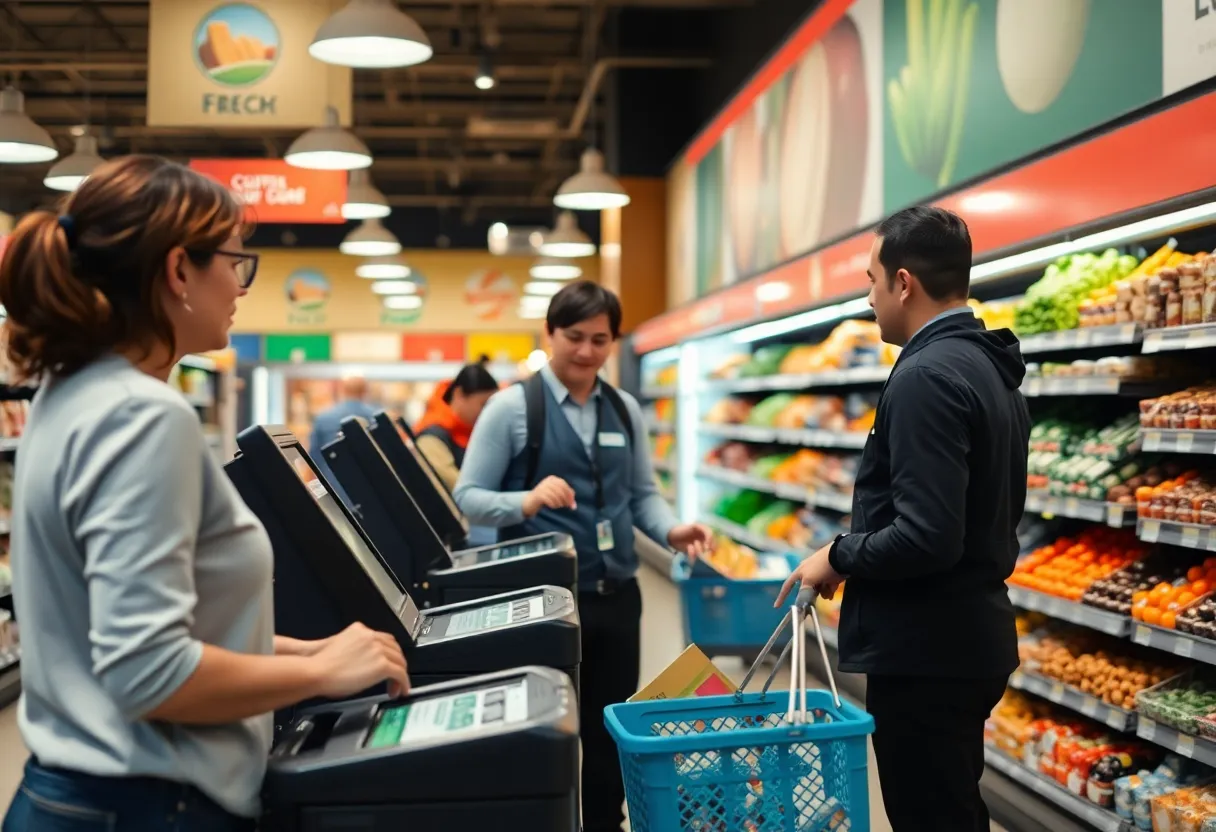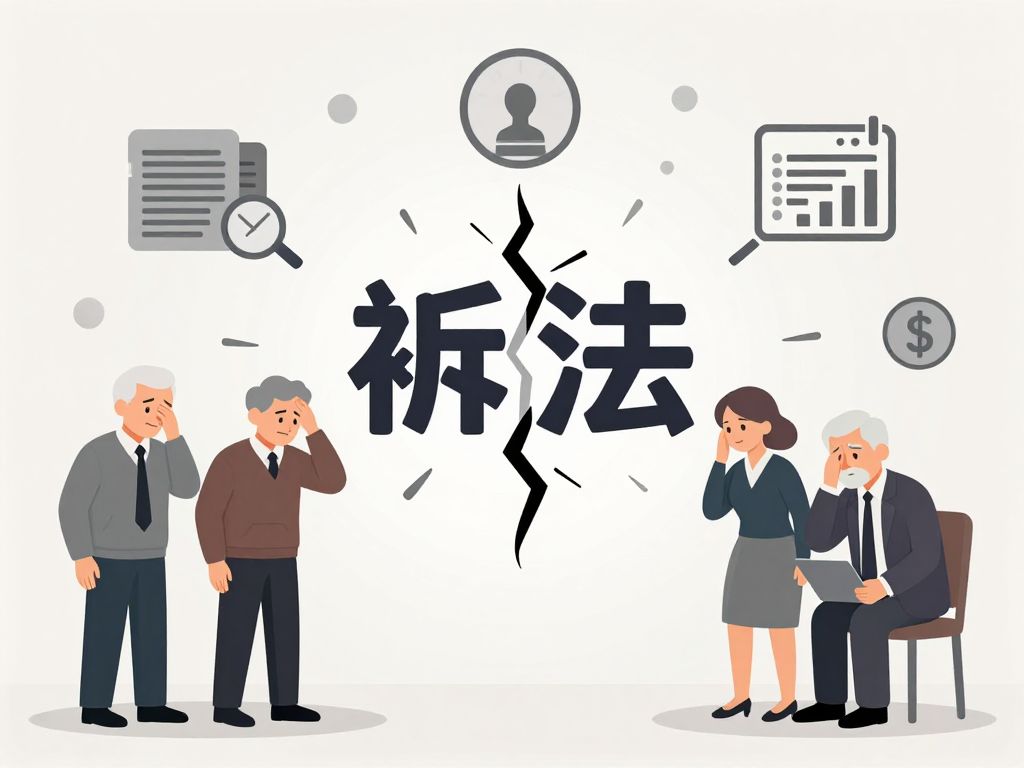News Summary
Massachusetts State Senator Paul Feeney has proposed a bill limiting self-checkout stations in grocery stores to enhance worker safety and customer service. The legislation mandates a maximum of eight self-checkouts per location, with a staffed lane for every two machines, aiming to reduce employee stress and customer frustration. Despite support from worker advocacy groups, retailers argue the bill could increase costs and operational burdens. The ongoing discussions reflect the need for a balanced approach to self-checkout staffing, ensuring both safety for workers and satisfaction for customers.
Framingham, Massachusetts—Massachusetts State Senator Paul Feeney has introduced a bill aimed at regulating self-checkout stations in grocery stores in response to growing concerns about worker safety and customer service. The legislation proposes strict guidelines that grocery and retail establishments must follow to ensure these machines do not compromise employee well-being or lead to frustration among shoppers.
The proposed bill, titled “An Act Regulating Self-Checkouts in Grocery Establishments,” seeks to limit the number of self-checkout stations in retail locations to eight at a time. Additionally, for every two machines in operation, a staffed lane must be open to assist customers. This regulation would also require that one employee is dedicated to monitoring every two self-checkout stations, prohibiting multitasking to maintain adequate support for customers and reduce potential safety issues.
The bill is currently under review by the Joint Committee on Consumer Protection and Professional Licensure. Advocates argue that the regulations would protect the dignity and safety of workers while addressing customer frustrations that arise from the malfunctioning technology commonly found at self-checkouts. With reports of customer distress leading to negative interactions, the bill aims to create a safer environment for both employees and shoppers.
Celine Blaisdell, a longtime employee at Stop & Shop, has voiced her concerns about the challenges associated with self-checkout stations. Having worked for the grocery chain for 36 years in Framingham, she describes these machines as creating a demanding work environment that exposes employees to aggression from frustrated customers. Incidents of customer misconduct have been reported, including a case where a coworker was injured due to aggressive behavior at a self-checkout station.
Despite the intentions behind the bill, the Retailers Association of Massachusetts has expressed opposition, arguing that such limitations would place additional burdens on staff, restrict customer choice, and lead to increased operational costs for grocery stores. The association highlighted that many grocery stores operate on narrow profit margins of 3% or less, indicating that raising staff numbers could ultimately translate to higher prices for consumers.
Brian Houghton from the Massachusetts Food Association has raised concerns that the proposed regulations could hinder the deployment of staff to perform other essential tasks within the stores. The labor market has remained tight for grocery retailers, with an average of nearly five full-time and nine part-time job vacancies reported last year. Given this situation, Houghton advocates for more flexible approaches to self-checkout staffing rather than stringent regulations.
Blaisdell has suggested that existing employees could be given more hours to specifically manage self-checkouts rather than hiring additional staff, thus maintaining efficiency without incurring additional costs. The union representing grocery workers, UFCW Local 1445, supports the bill, asserting that self-checkout stations can overwhelm both customers and employees during busy periods.
The complexities of self-checkout machines themselves add another layer to the discussion. These machines often malfunction or signal incorrect alerts due to minor problems, adding to the frustration of customers during peak shopping times. The need for human intervention becomes paramount in these scenarios, emphasizing that grocery workers should not be viewed merely as operators of machines but as valuable contributors to the shopping experience.
The ongoing discussion surrounding this proposed bill highlights the necessity for a balanced approach that considers worker safety while enabling grocery stores to maintain smooth operations and customer satisfaction. As the legislation moves through the review process, both advocates and opponents of the bill will continue to present their perspectives on the regulation of self-checkouts in Massachusetts.
Deeper Dive: News & Info About This Topic
- Boston.com
- Wikipedia: Self-checkout
- NBC Boston
- Google Search: Self-checkout regulations
- WBZ News Radio
- Encyclopedia Britannica: Self-checkout
- The Sun
- Google News: Self-checkout grocery store

Author: STAFF HERE BOSTON WRITER
The BOSTON STAFF WRITER represents the experienced team at HEREBoston.com, your go-to source for actionable local news and information in Boston, Suffolk County, and beyond. Specializing in "news you can use," we cover essential topics like product reviews for personal and business needs, local business directories, politics, real estate trends, neighborhood insights, and state news affecting the area—with deep expertise drawn from years of dedicated reporting and strong community input, including local press releases and business updates. We deliver top reporting on high-value events such as Boston Marathon, Head of the Charles Regatta, and Boston Harborfest. Our coverage extends to key organizations like the Greater Boston Chamber of Commerce and Associated Industries of Massachusetts, plus leading businesses in finance, biotech, and insurance that power the local economy such as Fidelity Investments, Biogen, and Liberty Mutual Insurance. As part of the broader HERE network, we provide comprehensive, credible insights into Massachusetts's dynamic landscape.





